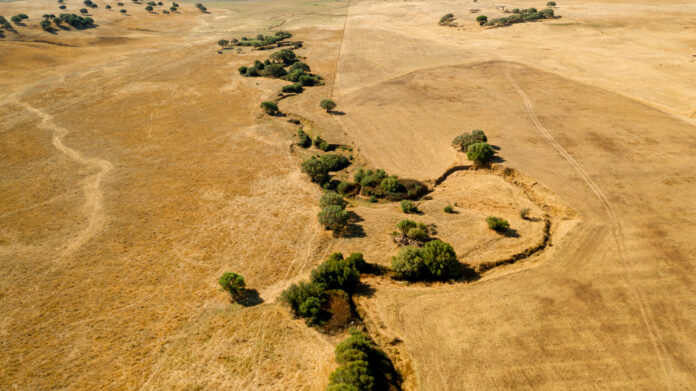COP16 desertification conference Riyadh: Saudi Arabia pledges $150m for drought resilience and land restoration
The UN’s largest-ever conference on desertification, COP16, opened in Riyadh today, focusing on bolstering global drought resilience and addressing land degradation. Running from December 2 to 13, the conference is packed with high-profile events, ministerial dialogues, and announcements aimed at tackling the escalating crisis of land degradation and drought.
One of the key moments of the opening day was the announcement of the Riyadh Global Drought Resilience Partnership. Abdulrahman Abdulmohsen Al-Fadhley, COP16 President, unveiled the $150 million initiative, designed to support multilateral efforts in the most drought-affected regions over the next decade. “This partnership promotes proactive cooperation to enhance resilience where it is most needed,” Al-Fadhley explained during the plenary session.
The conference is drawing a global audience, including French President Emmanuel Macron and World Bank President Ajay Banga, highlighting the international importance of desertification. In addition to COP16, the Saudi Green Initiative Forum, running from December 2 to 3, will feature hundreds of policymakers, business leaders, and experts in its dedicated Green Zone pavilion, focusing on sustainable solutions and technological innovations.
The European Union also took the stage, pledging increased collaboration to combat desertification and its wider implications, such as food security, water scarcity, and migration. Jessika Roswall, the EU’s Commissioner for Environment, noted the urgency: “The world loses 100 million hectares of productive land each year—double the size of France. Without fertile soil, food production collapses, and livelihoods are lost.” Roswall emphasised the EU’s commitment to scaling up solutions and called for a robust budget to empower the UNCCD beyond 2030.
Embed from Getty ImagesSaudi Arabia has further reinforced its leadership role by establishing a “Friends of the Chair” group, designed to guide policy discussions and draft the Riyadh Policy Declaration, a critical outcome document. Osama Faqeeha, Saudi deputy minister of environment and advisor to the COP16 president, highlighted the group’s mission: “This initiative will ensure that our ministerial declaration reflects the shared priorities and commitments of all participating nations.”
Amina Mohammed, Deputy Secretary-General of the UN, made an impassioned plea for urgent action, warning that delays would exacerbate the already dire situation. “Land sustains us, and we are destroying it,” she stated. “Action cannot wait.” She stressed the importance of mobilising finance and ramping up restoration efforts globally to mitigate the effects of climate change on land degradation.
Complementing COP16, the Second International Forum on Greening Technologies will run from December 6 to 8. This event will host tailored sessions focusing on global restoration projects, showcasing cutting-edge research and innovative solutions.
As COP16 unfolds, the world’s attention will remain on Riyadh, with the hope that these discussions lead to tangible outcomes that strengthen global resilience to drought and land degradation. The stakes are high, but with major investments and global cooperation on the agenda, COP16 has the potential to set a new benchmark in combating one of the most pressing environmental challenges of our time.
